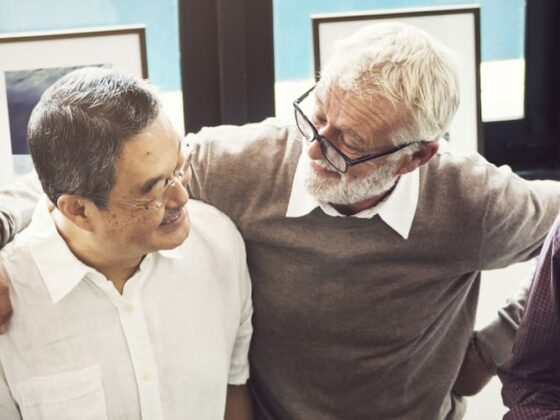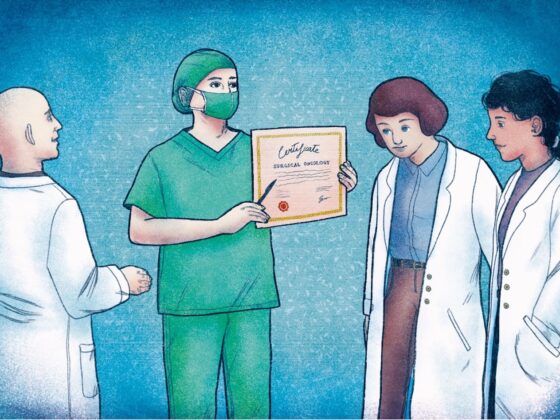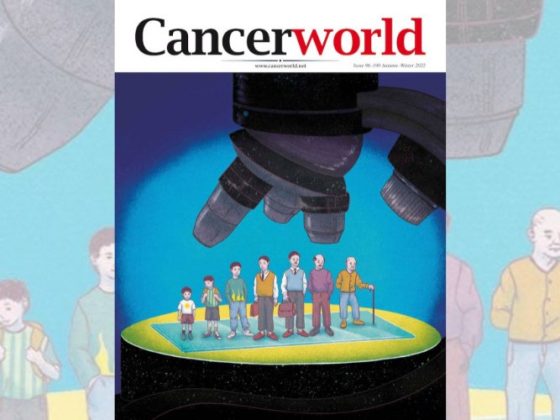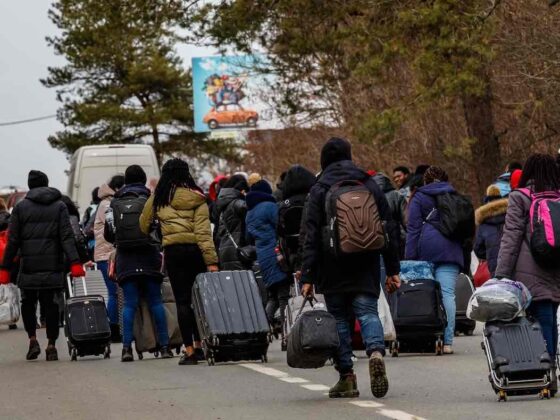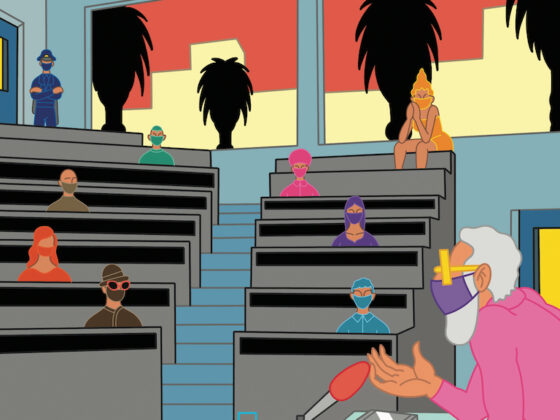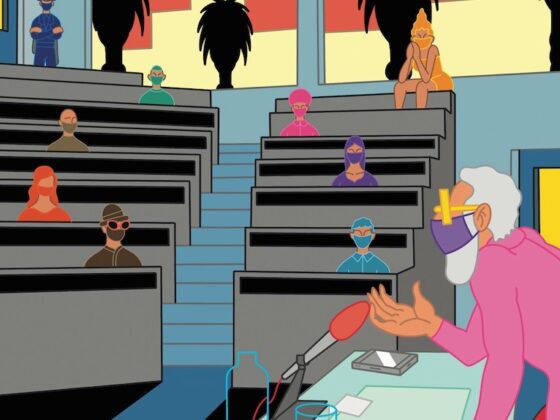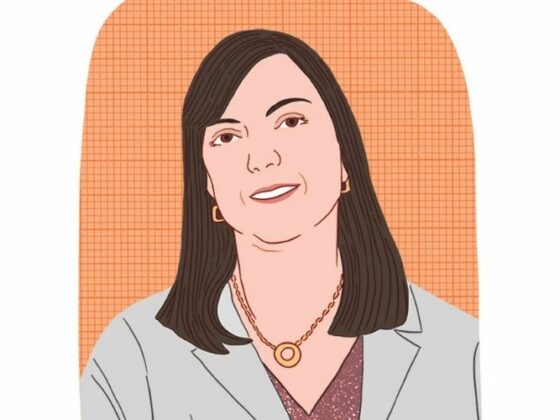An ageing population, environmental factors, infectious agents, and lifestyle changes all add to the rising impact of cancer on our lives.
If nothing is done, cancer will soon become the leading cause of death in Europe. A comprehensive collaboration across all sectors could reverse this rapidly rising trend. Up to four in ten cases of cancer are preventable, by immunisation, better diet, physical exercise, and greater awareness of cancer risks. Yet, at the moment, only a tiny sliver of health budgets is spent on prevention.
In 2020, 2.7 million people in the EU were diagnosed with the disease, and 1.3 million people lost their lives to it. On the positive side, 12.5 million people who were diagnosed with cancer are now considered cured. This points to the effectiveness of improved early detection and diagnosis, better and more tailored therapies, and a well-orchestrated support. It also raises new challenges, with many survivors struggling with quality of life, rehabilitation or family issues, and often finding it hard to keep working, or to find a job, or access insurance or a mortgage. All of these can be tackled by increased support in research and innovation.
On 3 February 2021, Europe’s Beating Cancer Plan was presented ahead of World Cancer Day, as a political commitment to beat cancer by addressing the entire disease pathway, from prevention and early detection, to diagnosis and treatment and quality of survivorship. With several billion euros in funding, the Plan identifies aims and initiatives to tackle every stage.
On prevention, the Plan looks to achieve a tobacco-free Europe, reduce alcohol consumption, and promote sustainable and affordable diet and physical activity. On early detection, the Plan will put forward a scheme to ensure access to breast, cervical and colorectal cancer screening for the great majority of the respective target populations. Screening for other cancers will also be considered. The Plan also looks to secure equal access to good quality, curative healthcare; to improve the quality of life for cancer patients, survivors, and carers; to reduce cancer inequalities; and to put childhood cancer under the spotlight.
Unfortunately, while Europe’s Beating Cancer Plan was being designed and published, the Covid-19 pandemic was wreaking havoc on our lives, uprooting our sense of normality, and propelling us into a new and uncertain landscape. Early detection and timely treatment of all forms of cancer took a hit from the combination of lockdowns, self-isolation, overstretched health systems, and restrictions on family support.
We know that a backlog of cases at higher grades will need to be tackled once we have contained the virus and returned to ‘normal’. But what will ‘normal’ be? We can anticipate a period of economic, physical, and psychological repercussions that will need to be dealt with. Will Europe’s response favour or undermine efforts to implement the Beating Cancer Plan? If we could harness some of the knowledge and experience we have accumulated over the past year, this could help us progress towards a healthier society.
At a policy level, the EU is investing €750 bn in its ‘NextGenerationEU’ recovery plan for Europe, which is presented as “… a once in a lifetime chance to emerge stronger from the pandemic, transform our economies, create opportunities and jobs for the Europe where we want to live”.
At a societal level, we humans see ourselves as independent thinkers acting with free will, yet as social animals, we adopt behaviours and habits that make us fit in with our community. Such ingrained patterns of behaviour can be useful to maintain continuity within the herd, which may be why it can be so hard to use free will to change our habits. And yet lifestyles can change quickly when faced with a crisis, and can become the ‘new normal’; that is, become as ingrained as our previous behaviour.
Some of the changes we have adopted during the pandemic we might well want to keep. People are showing much more interest in health, and a desire to search more solid sources of information, such as reputable journalism and medical literature. We have rediscovered home cooking, with the added advantage of looking more carefully at ingredients and quantities. Although outdoor activities and gyms have been closed or less available, video fitness classes and home workouts have increased, which also draws the attention to inner balance and personal journeys. New technology, working remotely, travelling less, rediscovering the joys of family, can all have a positive impact. And last, but not least, the race to research Covid-19 has shown the world the outstanding results that are possible from collaboration and funding science.
Much has changed in the world of science, technology, communication, and social awareness since the Europe Against Cancer action plans of 1987‒1994. All of these advances have an important role. Big data, artificial intelligence, and genomics will contribute to a better understanding of this multi-faceted disease and fill some of the gaps in our knowledge, ultimately allowing us to save costs as well as lives. New technologies and machines may shape new ways of preventing, detecting, and treating cancer. New challenges must also be tackled, such as privacy concerns and cross-border data exchange, speeding the process of new technology uptake, and interpretation and sharing of data. Innovation could also worsen inequality, at least in the short term. The Plan together with the Cancer Mission and Horizon Europe will facilitate and encourage scientific research, leading to new discoveries, therapies, and affordable medicines. The success of Europe’s Beating Cancer Plan will rely on intercommunication, sharing and collaborating. To quote Manfred Weber, in an interview with Cancer World: “The development of the Covid vaccine is one great example of how much Europeans can achieve when they work together. What this experience shows is that promoting collaboration and supporting research and innovation across Europe can make a tangible difference in people’s lives.”
12 Points for a high-impact Beating Cancer Plan
- Set ambitious goals to inspire and galvanise.
- Ensure ALL stakeholders are involved.
- Focus on the quality of cancer care.
- Take action to improve survivorship and quality of life.
- Achieve better integration of primary care into the cancer care pathway.
- Address inequalities
- Support healthcare professional education & mobility.
- Improve data use and the evidence environment in European cancer care.
- Be courageous on primary prevention.
- Increase health literacy.
- Assist early detection including by updating EU screening recommendations.
- Improve access to outcome-improving innovation.
Source: Adapted from the European Cancer Organisation ‘A checklist for an ambitious, unifying and change-making Plan’, developed in discussion and agreement with members of the European Cancer Organisation and its Patient Advisory Committee, accessed 17 May 2021
Detail of the cover of Cancer World Issue 90 by Vito Manolo Roma.



